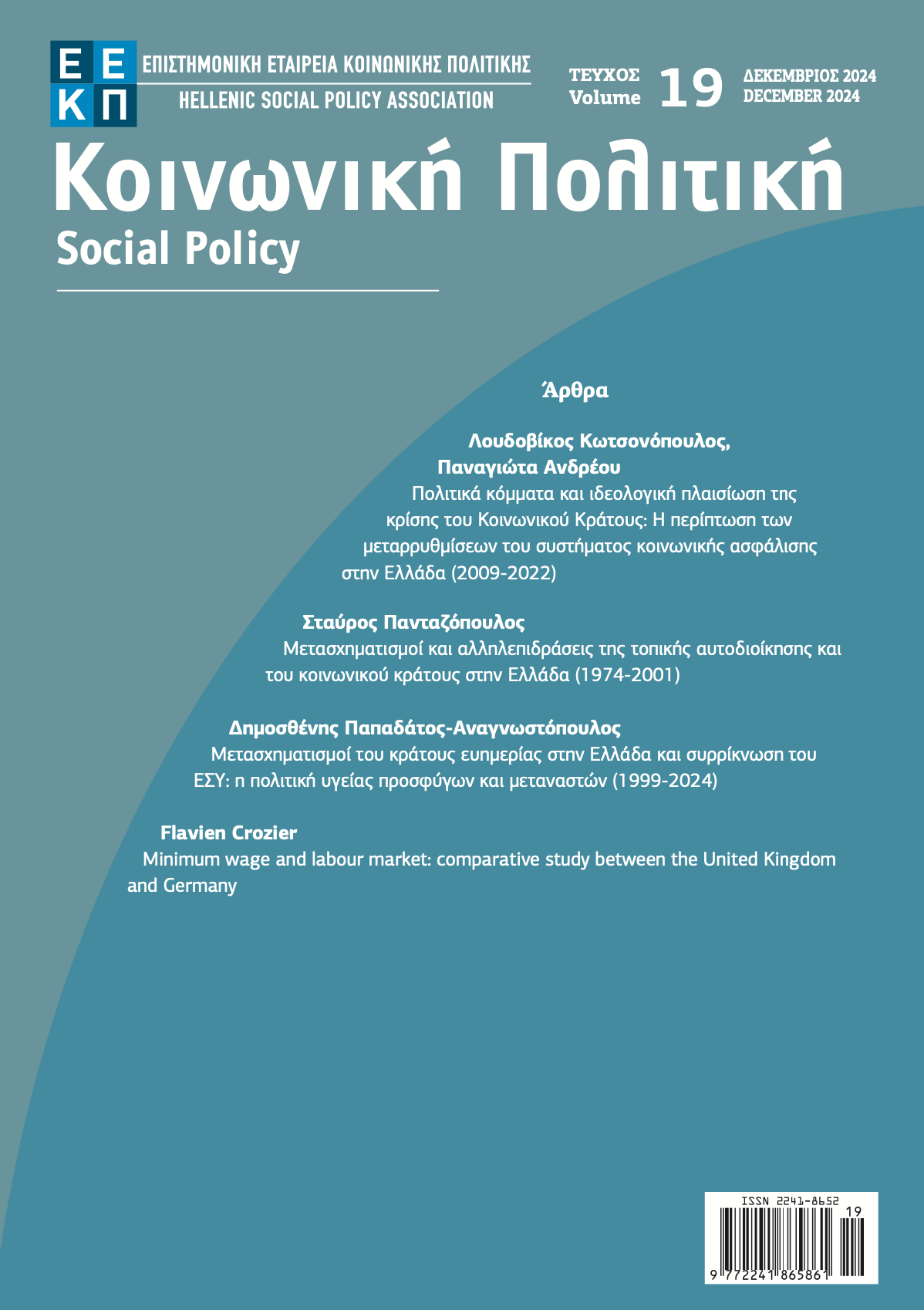Political Parties and Ideological framing of Welfare State crisis: The case of Social Insurance Reform in Greece (2009-2022)
Abstract
This article examines the evolution of the ideological discourse articulated by political parties as a component of the political practices they employ to manage various social policy reforms, particularly those concerning the Social Insurance System. It attempts to periodize the Metapolitefsi era based on the political practices adopted by political parties in relation to the Social Insurance System reform. Four distinct periods can be distinguished: the period of credit claiming (1974-1990), the period of selective blame avoidance (1990-2009), the period of imposed external coercion (2009-2018), and finally, the period of negative credit claiming (2019-2022). The article focuses particularly on the study of the last two periods, analyzing political tactics and ideological discourse in depth, both within the Government and the Opposition, as depicted in the minutes of parliamentary debates. The qualitative analysis of the ideological discourse of political parties, as articulated in the key reforms of the Social Insurance System during recent periods, is conducted based on existing literature regarding political cost reduction tactics associated with attempted reforms
Article Details
- How to Cite
-
KOTSONOPOULOS, L., & Ανδρέου Π. (2025). Political Parties and Ideological framing of Welfare State crisis: The case of Social Insurance Reform in Greece (2009-2022). Social Policy, 19, 9–34. https://doi.org/10.12681/sp.37118
- Issue
- Vol. 19 (2024)
- Section
- Articles

This work is licensed under a Creative Commons Attribution 4.0 International License.
Authors who publish with this journal agree to the following terms:
Authors retain copyright and grant the journal right of first publication with the work simultaneously licensed under a Creative Commons Attribution Non-Commercial License that allows others to share the work with an acknowledgement of the work's authorship and initial publication in this journal.
Authors are able to enter into separate, additional contractual arrangements for the non-exclusive distribution of the journal's published version of the work (e.g. post it to an institutional repository or publish it in a book), with an acknowledgement of its initial publication in this journal.
Authors are permitted and encouraged to post their work online (preferably in institutional repositories or on their website) prior to and during the submission process, as it can lead to productive exchanges, as well as earlier and greater citation of published work.



